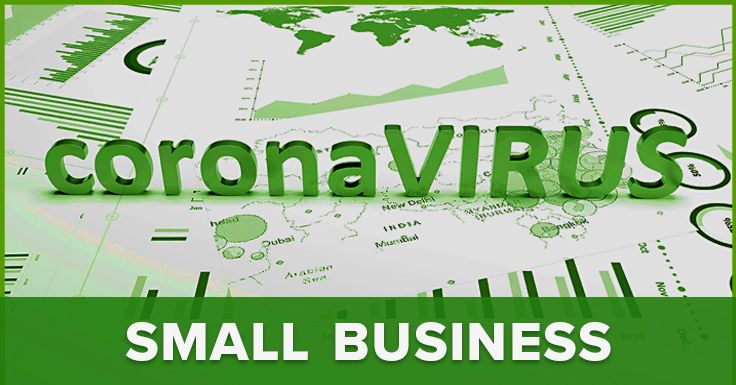March 23, 2020
 Pursuant to Executive Order 2020-21 (“EO 2020-21”) that was released on March 23, 2020, Governor Whitmer has issued a “stay-at-home” order. The stay-at-home order, also known as shelter-in-place, is intended to prevent the spread of the novel Coronavirus, COVID-19. EO 2020-21 orders individuals to stay at their place of residence until April 13, 2020 unless they are partaking in an outdoor activity, obtaining essential supplies like groceries, caring for a family member, or reporting to work at an exempt business. EO 2020-21 broadly exempts health and human services, grocery stores, certain manufacturers, gas stations, and other essential businesses. EO 2020-21 does not affect businesses with employees that are working exclusively from home.
Pursuant to Executive Order 2020-21 (“EO 2020-21”) that was released on March 23, 2020, Governor Whitmer has issued a “stay-at-home” order. The stay-at-home order, also known as shelter-in-place, is intended to prevent the spread of the novel Coronavirus, COVID-19. EO 2020-21 orders individuals to stay at their place of residence until April 13, 2020 unless they are partaking in an outdoor activity, obtaining essential supplies like groceries, caring for a family member, or reporting to work at an exempt business. EO 2020-21 broadly exempts health and human services, grocery stores, certain manufacturers, gas stations, and other essential businesses. EO 2020-21 does not affect businesses with employees that are working exclusively from home.
A summary of the requirements as well as some additional commentary is as follows:
Prohibited Activities. Public and private gatherings outside of a single household are prohibited. Individuals may leave their homes for health and safety (such as to obtain medical care), necessary supplies and services, outdoor activity, work as a critical infrastructure worker, and to care for others. When outside the residence, individuals must maintain social distancing of six or more feet from individuals other than household members.
Critical Infrastructure Workers. Businesses and operations that employ critical infrastructure workers may continue in-person operations, subject to the conditions in EO 2020-21. Critical workers must be designated in writing and include workers in the following sectors:
- Health care and public health;
- Law enforcement, public safety, and first responders;
- Food and agriculture
- Energy;
- Water, wastewater, and other public works;
- Transportation and logistics;
- Media and other communications and information technology;
- Critical manufacturing;
- Hazardous materials;
- Financial services;
- Chemical supply chains and safety; and
- Defense industrial base.
Critical Manufacturing. Critical infrastructure workers also includes individuals who work at designated manufacturers, suppliers, and distribution centers that enable, support, or facilitate the work of other critical infrastructure workers, but only to the extent those workers are necessary to do so.
Health Care and Public Health. Healthcare and human service workers may leave their homes for work. Health care workers include those at hospitals, clinics, dental offices, pharmacies, blood banks, and other healthcare providers. Child care workers are exempt but only to the extent necessary to watch the children and dependents of critical infrastructure workers.
Non-Essential Business Must Cease Except for Minimum Basic Operations. All businesses that are not essential must cease all activities that require workers to leave their residences except to the extent necessary to sustain or protect life or conduct minimum basic operations.
Minimum Basic Operations. Minimum Basic Operations includes works necessary to allow the business to maintain the value of inventory and equipment, care for animals, ensure security, process transactions (including payroll and employee benefits), or facilitate the ability of other workers to work remotely. Businesses must maintain social distancing practices by restricting the number of workers present to no more than necessary to perform the operations, promoting work from home, and keeping workers at least six feet apart. Businesses should also clean and disinfect the premises.
Religious and Nonprofit. Organizations that provide food, shelter, and other necessities for individuals with disabilities, that are economical disadvantaged, or otherwise needy may remain open.
For more complete information, please see the order at EO 2020-21 and federal guidance on critical infrastructure at CISA.gov. As this situation evolves, more information can be found at Michigan.gov/coronavirus.
Foster Swift remains open and ready to serve your legal needs. We are ready and able to assist any business in making the determination about whether it is exempt and whether its workers are critical infrastructure workers. If you need help making this determination or have any other questions regarding the impact of COVID-19 on your business, please contact your Foster Swift attorney or one of the designated Coronavirus Task Force Coordinators:
- Mid-Michigan - John Mashni | 517.371.8257 | jmashni@fosterswift.com
- Southeast Michigan - Matthew Fedor |248.785.4734 |mfedor@fosterswift.com
- West & Northern Michigan - Laura Genovich |616.726.2238 | lgenovich@fosterswift.com



 Share
Share